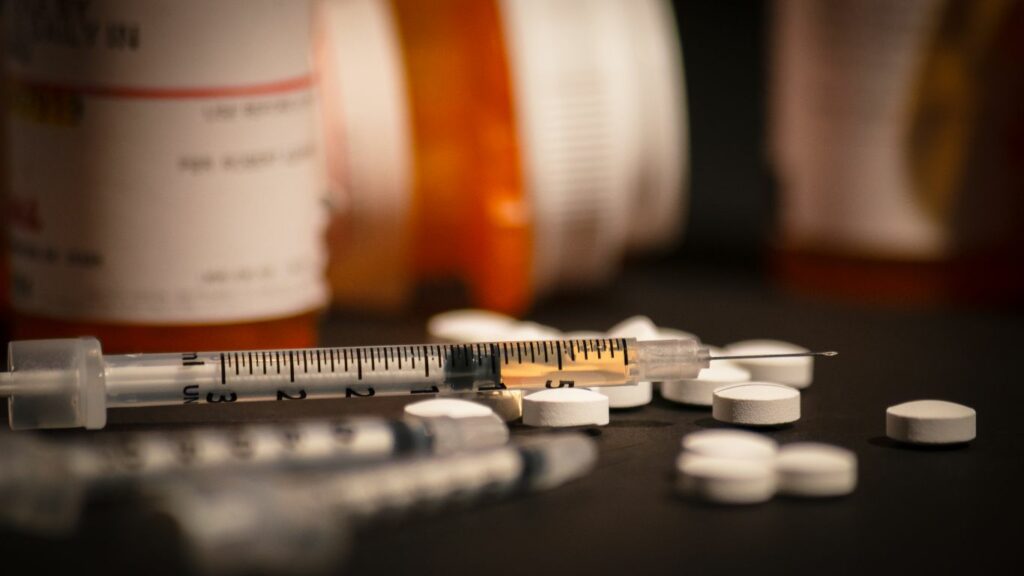The Dangers of Mixing Alcohol and Opioids

On their own, opioids are extremely powerful drugs, but when mixed with alcohol, they become an even more potentially lethal cocktail. Since both opioids and alcohol are depressants, their combined use can intensify their effects on the brain and body, causing unpredictable and, sometimes, disastrous consequences. According to the Centers for Disease Control, more than half of people who misuse opioids also binge drink. The Journal of American Medicine has found that nearly 15% of opioid overdose deaths also involve alcohol–and that number is growing.
Why Alcohol and Opioids Are a Dangerous Combination
Mixing opioids with any other powerful substance is never a good idea. Half of opioid overdose deaths in 2017 involved another substance such as alcohol, as mentioned, or other drugs such as cocaine or benzodiazepines. Too often, people minimize the risks associated with combining opioids and alcohol. For instance, they may have had a drink while taking an opioid in the past with no adverse effects. However, it only takes a slight increase in either substance to trigger adverse effects, which is why healthcare providers repeatedly warn opioid users not to drink alcohol while taking such medications. When combined, the drugs can suppress the body’s respiratory functions to the point that overdose occurs.
The Effects of Alcohol on the Body
Alcohol is a depressant that can have both short and long-term effects on the body. An excessive bout of drinking can cause effects such as:
- Speeding up the heart rate
- Impaired decision making (cognitive function)
- Slurred speech
- Blurry vision
- Reduced motor skills and coordination
- Nausea and vomiting
- Impaired breathing and gag reflex
When combined with opioids, these effects can occur WITHOUT drinking an excessive amount of alcohol. Even reduced amounts of these substances taken together can trigger these effects.
Call Daybreak Treatment Solutions today at (844) 695-0083 for help in overcoming your addiction.
Effects of Opioids on the Body
Opioids like Fentanyl and Oxycodone have been formulated to relieve pain, but many people abuse these drugs and use them recreationally. Opioids commonly produce effects on the brain and body that include:
- Sleepiness
- Dry mouth (which can trigger a person to drink more)
- Confusion
- Nausea and vomiting
Taking too much of an opioid causes the respiratory system to slow. If it slows down too much, an overdose occurs. Breathing may slow to the point that organs are negatively affected; breathing may also stop altogether, causing death.
Risks of Mixing Alcohol and Opioids
Use of alcohol or opioids on their own can trigger a medical emergency when too much of the substance is taken or, simply, that the individual has an adverse reaction. But when these substances are combined, the risk for a serious medical emergency goes up. Combining alcohol and opioids heightens the risk for:
- Dehydration
- Irregular heart rate
- Dizziness
- Extreme confusion
- Loss of coordination (increased risk of falling or injury)
- Loss of inhibitions (increasing the likelihood of high-risk behaviors)
- Unconsciousness
- Coma
- Suppressed respiratory function
- Respiratory system arrest
- Death
Again, there is no safe amount for combining alcohol and opioids. The combination of these substances intensifies their effects, which can quickly lead to a medical emergency.
Addiction Treatment for Alcohol and Opioids at DayBreak
Misusing either alcohol or opioids is cause for concern. If you abuse either of these substances on their own or combine them, you should be evaluated for a substance use disorder. At DayBreak, we feature high-quality addiction treatment designed to help people manage their addiction to substances like opioids and alcohol. Emergency room visits related to mixing alcohol and opioids are on the rise. Take control of your life and health and get the help you need to protect your well-being. Call us today at (844) 695-0083 for more information.
